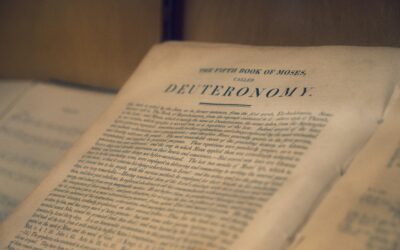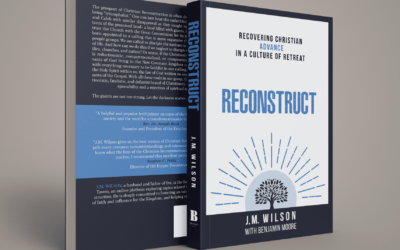Introduction
The historical context of Thomas Jefferson’s letter to the Danbury Baptists is well-documented. This wasn’t a hastily-cribbed response by a busy President who saw this as a minor communication from/to a small group of fringe religionists (Baptists were a minority religion in Connecticut at this time). Jefferson carefully drafted a response, and sent it to at least two other men.[1] requesting feedback on how to make the wording most effective.
Most effective for what? What did Jefferson — a sitting President of the country — have to gain by sending a short note to a Baptist Association in Connecticut composed of 26 churches which weren’t part of that State’s church establishment?
Let’s look at the political context.
Jefferson’s Presidential “Tweet”
It might help to think of presidential letters back then as the “Presidential Tweets” of the time. They received just as wide attention (the population — especially the voting population of New England — read lots of pamphlets and newspapers), and had just as much potential to stir up people politically. And we know that this was Jefferson’s intention, because he communicated this fact to his Attorney General:
I know it will give great offence to the New England clergy: but the advocate for religious freedom is to expect neither peace nor forgiveness from them. [W]ill you be so good as to examine the answer and suggest any alterations, which might prevent an ill effect, or promote a good one, among the people? [Y]ou understand the temper of those in the North, and can weaken it therefore to their stomachs: it is at present seasoned to the Southern taste only. (emphasis added)
Letter from Jefferson to Levi Lincoln (Jan. 1, 1802), quoted in Hamburger, Separation of Church and State, 159
Early party politics
This was the (brief) era of the Democratic-Republicans (Jefferson’s party) versus the Federalists (the party which was dominant in the New England states, and especially Connecticut). Although the Federalists had won an initial presidential victory with John Adams (in the very close election of 1796), the election of Thomas Jefferson in 1800 marked the beginning a period of Democratic-Republican dominance of the Presidency (the “Virginia presidential dynasty”), much to the dismay of the Federalists in New England. Jefferson was essentially the “Donald Trump” of his day, as viewed by the New England Federalist establishment.
Jefferson saw his 1802 Danbury BA letter as a perfect opportunity to stir up political sentiment in the Federalist stronghold of Connecticut. In fact, Jefferson’s draft reply (never sent) to the Danbury Baptists was even more provocative: he was going to voice his opposition to official proclamations of “fastings and thanksgivings”, which were popular in New England. However, Jefferson was convinced to take this language out of the final version.
The New England established churches
At this time, Connecticut still had an established church (like Massachusetts and New Hampshire). Tax money was collected by the state and given to the Congregational churches, but this policy was increasingly unpopular among a large segment of the population.
The Connecticut Baptists were allowed to “opt out” of these taxes by signing certificates proclaiming their minority status, but they were not happy about this arrangement. They saw these certificates as “degrading acknowledgements, as are inconsistent with the rights of freem[e]n.”[2]. They were concerned that these tax exemptions were merely “favors granted, and not as inalienable rights”[3]. They hoped that Jefferson would use his Presidential “bully pulpit” (to use an anachronistic term), to help sway Connecticut voters on this issue.
Jefferson, of course, was happy to do so:
Averse to receive addresses, yet unable to prevent them, I have generally endeavored to turn them to some account, by making them the occasion, by way of answer, of sowing useful truths and principles among the people, which might germinate and become rooted among their political tenets.
Letter from Jefferson to Levi Lincoln (Jan. 1, 1802), quoted in Hamburger, Separation of Church and State, 159
Jefferson’s Response to Danbury Baptist Association
I contemplate with sovereign reverence that act of the whole American people which declared that their legislature should “make no law respecting an establishment of religion, or prohibiting the free exercise thereof,” thus building a wall of separation between Church & State.
https://www.loc.gov/loc/lcib/9806/danpre.html
In his private correspondence with AG Lincoln, we see exactly what Jefferson intended by his provocative wording “separation between church and state” in the public letter:
The Baptist address now inclosed admits of a condemnation of the alliance between church and state, under the authority of the Constitution.
Letter from Jefferson to Levi Lincoln (Jan. 1, 1802), quoted in Hamburger, Separation of Church and State, 159
Jefferson was expressing his direct opposition to the New England church establishment, to an organization right at the heart of this intra-state conflict in Connecticut. But this opposition only “worked” through his clever use of wording: the “establishment clause” of the First Amendment to the Constitution only prevented the Federal Government from establishing (or disestablishing) a church. But Jefferson was implying that the principle (enshrined at the Federal level) of “separation between church and state” should also be an important principle at the State level as well.
Could we label this as “trolling” by Jefferson? I think that’s fair.
We have a contemporary assessment of Jefferson’s letter by Postmaster General Granger, who was himself a New Englander, and understood exactly what the effect would be upon the politics of that State:
Postmaster General Gideon Granger wrote that Jefferson’s answer “will undoubtedly give great Offence to the established Clergy of New England while it will delight the Dissenters as they are called.” Yet “[i]t is but a declaration of Truths which are in fact felt by a great Majority of New England, and publicly acknowledged by near half of the People of Connecticut.” Although he acknowledged that “[i]t may . . . occasion a temporary Spasm among the Established Religionists,” Granger wrote that “his mind approve[d] of it, because it will ‘germinate among the People’ and in time fix ‘their political Tenets.’”
Hamburger, Separation of Church and State, 160
Conclusion
In its modern use, the phrase “separation of church and state” has come to mean something like:
- “civil government should try to be ‘secular’, and in no way ‘religious'”, or
- “civil government should be ‘neutral’ with respect to ‘religion'”.
Neither of these modern concepts correspond to what Jefferson was trying to accomplish in his 1802 letter. They are not even coherent philosophically, once you understand the impossibility of neutrality when it comes to religion and law.
Notes
[1] Attorney General Levi Lincoln and Postmaster General Gideon Granger
[2] Danbury BA’s letter to Jefferson
[3] Danbury BA’s letter to Jefferson





0 Comments